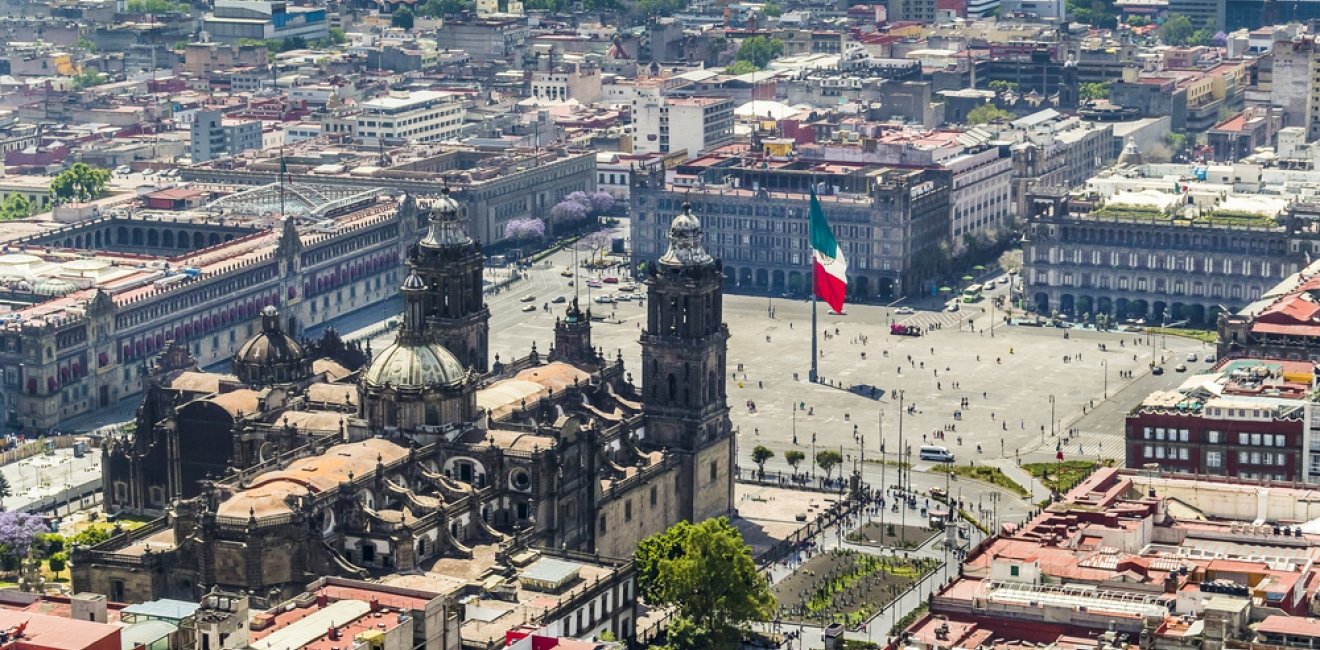On June 2, an estimated 99 million Mexican citizens will turn out at the polls to elect the first female president, 128 senators, 500 congressional representatives, and more than 20,000 local government officials. The 2024 electoral cycle will be the largest in its history and with elections coinciding between Mexico and the U.S. every twelve years, the winners will shape the future of Mexico’s domestic and foreign policy.
Sheinbaum, a physicist and energy and environmental engineer, is the granddaughter of Jewish migrants. She served as the Secretary of Environment during AMLO’s tenure as Head of Government of Mexico City, later winning the mayorship of Mexico City herself in 2018.
Her opponent, Gálvez, grew up in poverty in the state of Hidalgo, the daughter of an indigenous father and a mixed-race mother. She is a computer engineer and a successful tech entrepreneur. Her political career began under President Vicente Fox’s administration, serving as Director of the National Commission of Development of Indigenous People. Later, she won the mayorship of one of the most prominent districts in the capital, Miguel Hidalgo.
While most of the attention is rightfully placed on the presidential race, the composition of Mexico’s next Congress will dictate much of what the next president will be able to achieve during her six-year term. The governing party, Morena, understands the importance of attaining a supermajority in both houses of Congress to approve AMLO’s 20 sweeping constitutional reforms. To change most laws or pass implementing legislation, a simple majority suffices, but for the package of constitutional reforms that AMLO has presented to Congress, he needs a supermajority.
After unsuccessful attempts to modify Mexico’s Constitution and suffering major setbacks from the Supreme Court, AMLO settled on a strategy to achieve a two-thirds legislative majority in June’s elections: “Plan C.”
Attaining a supermajority is key for the future success of the next president, whomever that may be. The next Congress will begin on September 1st, exactly one month before the next president takes office. If Morena can secure a supermajority (334/500 deputies, 96/128 senators), the president would have 30 days to pass as many of his reforms as possible. Perhaps the most important, and alarming for Mexico’s democracy, is a judicial reform that aims for judges to be elected by popular vote, including Supreme Court justices. Mexico’s highest court has carried out its duties in accordance with the Mexican constitution to serve as a checks and balances against the government and Congress.
AMLO considers the Supreme Court his enemy, after it invalidated portions of his “Plan B” electoral reform. The judicial branch deemed the president’s electricity industry law and presidential decree on hydrocarbons as unconstitutional and prohibited the National Guard from becoming part of the Defense Ministry (Sedena), for example. The judicial reform becomes ever more salient, given that AMLO has selected four justices under his tenure and the new president would be responsible for choosing a fifth justice. Supreme Court rulings for unconstitutionally require eight out of the eleven justices, so with five potentially affiliated to Morena, it could tilt the balance in its favor.
Among AMLO’s other legislative ambitions is to pass a bill that would dissolve independent agencies that have served as watchdog organizations, such as those that regulate telecommunications (IFT), access to the energy market (CRE), and access to government information (INAI). He will most likely also attempt to pass an electoral and security reform, in addition to raising the minimum wage, elevating his social programs to constitutional rank, and strengthening the Federal Electricity Commission (CFE), among others.
If Sheinbaum wins by a small percentage, AMLO could become even more emboldened to attack and question Mexico’s electoral institutions. He could also accuse the INE of electoral fraud, like he did in the presidential election of 2006 when he lost by less than 1% of the vote. If he refuses to acknowledge Gálvez’s victory and impedes a smooth transition of power, this could further destabilize the institutions AMLO has worked to dismantle for the last several years and throw Mexico into disarray. The June elections will be a pivotal moment in Mexico’s history. June 2nd will be a historical moment, not only because Mexico will have its first female president, but because the institutions that have held the country’s democracy together since the 2000 transition from a 71-year single-party rule are likely to be tested like never before.
Author


Mexico Institute
The Mexico Institute seeks to improve understanding, communication, and cooperation between Mexico and the United States by promoting original research, encouraging public discussion, and proposing policy options for enhancing the bilateral relationship. A binational Advisory Board, chaired by Luis Téllez and Earl Anthony Wayne, oversees the work of the Mexico Institute. Read more

Explore More
Browse Insights & Analysis
Germany Post Election: Conservatives and Far-Right Enjoy Electoral Success



